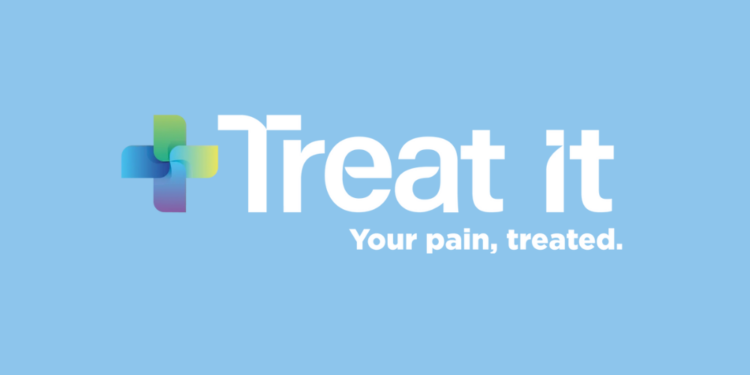Last month, London Stock Exchange (LSE) listed digital health operator Kanabo launched a major expansion of its online clinic, which will now cover mental health services, including prescriptions for medical cannabis.
The move marks an attempt to tackle what Kanabo’s CEO, Avihu Tamir, describes as a ‘mental health crisis’ in the UK, which is exacerbated by the ‘lack of infrastructure’ and ‘inadequate access to support and treatment’ through the NHS.
Kanabo’s expansion has been over a year in the making, and due to the complex nature of treating mental health conditions, the company has placed significant emphasis on creating a robust prescription method, aiming to ‘ensure we get this right’.
Treat It platform
The expansion comes almost a year after Kanabo launched a new online medical cannabis clinic, Treat It, powered by its private telemedicine and online primary healthcare service provider, The GP Service, which it acquired in a deal worth £14m a year earlier.
Unlike the majority of medical cannabis clinics in the UK, Treat It is an online primary healthcare provider, and utilises the ‘backbone’ of The GP Service’s platform to give doctors instant access to patients’ medical records, enabling them to make recommendations for treatment.
These treatments can be processed and delivered ‘usually within a week’ to The GP Service’s existing network of roughly 2,000 pharmacies across the UK, with repeat prescriptions sent ‘the next day’.
Furthermore, patients who are ineligible for medical cannabis are directed towards the more general GP Service, while general patients who are potentially eligible for medical cannabis treatment can similarly be directed to Treat It.
When it launched, Treat It prescribed medical cannabis only for pain management. Now, patients suffering from mental health conditions such as anxiety, ADHD or PTSD can access treatment through the platform.
Mr Tamir told Business of Cannabis: “Mental health in the UK is the second largest category for medical prescriptions. This is unique to the UK. In most markets, mental health is usually the fourth or fifth largest category.
“So, mental health is very much a key focus for us. We now have a lead psychiatrist who has joined us, and she believes in cannabis as a treatment for mental health very much, coming from a background of ADHD-prescribing.”
Check out Treat-It Clinic's video! #TikTok https://t.co/hDJI7uD0QR #treatit #pain #MedicalCannabis #DrBal
— Kanabo (@KanaboGroup) June 15, 2023
Mental health prescribing is not straightforward
However, as Mr Tamir explains, prescribing for pain indications is ‘more straightforward’ than prescribing for mental health, and more robust procedures needed to be built before the expansion could be rolled out.
“Prescribing pain is easier – if you have a record of two traditional medications and no history of mental health disorders, you can get a medical cannabis prescription, which is quite straightforward. Mental health is different.
“Patients who are coming in will often have some kind of mental health indication. How do you deal with not disqualifying them, because, in theory, if they have psychosis in their family, or they had suicidal tendencies, they should be disqualified? But they are mental health patients and we needed to find a more robust process to be able to treat them.”
Through Treat It’s service, mental health patients who receive a consultation at the start of the process will be screened to see which of them need some time and attention. Then in a second consultation, the specialist will see only those who have some sort of background indication.
He continued that training GPs was also a big part of the process, especially around recognising ‘suicidality’.
“One of the biggest fears of the UK medical cannabis industry is having patients end up in hospital, because that’s all the regulators or opponents of cannabis need to start creating issues for all of us. This will usually happen to cannabis-naive patients who took too much and didn’t listen to their doctor. So it’s not because of cannabis; it’s because of misuse.
“I think it’s beyond safety. It’s also about protecting us as an industry, because when volume goes up, we will see more cases.”
Patients who have tried other forms of therapy or medication can now take an online eligibility test before being connected to a specialist doctor, who is able to access their NHS records offering them a complete picture of the patient’s medical background.
A treatment plan will then be created, and patients can receive their prescription.
In-person pharmacies
The expansion of the Treat It service comes just months after another key milestone for Kanabo, the establishment of a physical walk-in pharmacy.
Mr Tamir explained: “The GP service came with a key asset – it was connected to roughly 2,000 pharmacies across the UK today dispensing traditional medication, so we decided to try to leverage this with medical cannabis.”
This led Kanabo to launch The City Dock Pharmacy at Wapping, London, in January, which has been described as an ‘overwhelming success’.
Expecting to see patients arrive only from the surrounding borough, Kanabo has seen patients come from all around London, and even some from outside the city.
This has been ‘surprising’ given that these patients have still had the option to access the service online. However, Mr Tamir believes the continued lack of education around medical cannabis in the UK has driven cannabis-naive patients to seek in-person appointments.
“All of these concerns are being mitigated by a talk with the pharmacist. We’re the only clinic that is doing it right now in the UK. And we see that there’s real value that patients are getting. Pharmacies here are often an important part of the community, too.”
Given the success of its initial site in Wapping, Kanabo is launched a second in-pharmacy clinic at Village Pharmacy at Bramhall, Manchester, last week, and has plans to launch ‘7 to 12 pharmacies by the end of the year’.





















